Ampicillin Essentials
A semi-synthetic penicillin-type antibiotic, Ampicillin, works effectively against a wide array of bacterial infections. Its pharmacological prowess lies in its ability to inhibit bacterial cell wall synthesis, making it a potent weapon in the medical arsenal against various bacterial invasions in the human body.
Ampicillin Applications
This antibiotic’s clinical applications are numerous. Ampicillin is widely prescribed for treating infections such as meningitis, septicemia, endocarditis, and respiratory tract infections, to name a few. It is equally effective in combatting urinary tract infections, gastrointestinal infections, and several others. Additionally, Ampicillin often finds its use in the prophylactic treatment of certain medical conditions, ensuring a preventive approach against potential bacterial infections.
Administration Guidelines
Adhering to the proper regime is crucial when taking Ampicillin. It is administered orally and intravenously, depending on the severity of the infection. The oral form comes in capsules and suspension, while the intravenous form is available as a powder for reconstitution. The dosage varies significantly based on numerous factors such as age, weight, the severity of the infection, and kidney function. It’s imperative to consult with a healthcare provider for the correct dosage tailored to individual patient needs.
Precautionary Measures
Before embracing Ampicillin’s therapeutic benefits, precautionary measures must be taken. Patients with a known history of hypersensitivity to penicillins should avoid this medication. Caution is also advised for those with a history of severe allergic reactions. Regular monitoring is essential for patients on prolonged therapy, as it may lead to bacterial or fungal overgrowth, leading to secondary infections. Additionally, it is necessary to ensure the medication is used for bacterial infections and not for viral ailments, such as the common cold or flu, to prevent antibiotic resistance.
Drug Interactions
The therapeutic efficacy of Ampicillin can be impeded by interactions with other medications. Substances that decrease gastric acidity may result in reduced absorption, and certain antibiotics such as tetracycline may interfere with Ampicillin’s bacterial eradication ability. Moreover, the concurrent use of allopurinol can increase the risk of skin rash, and oral contraceptives may have reduced efficacy when taken alongside Ampicillin. Thus, it’s essential to inform healthcare providers of all medications being taken to avoid adverse interactions.
Potential Adverse Reactions
Although Ampicillin is generally well-tolerated, it may cause side effects in some individuals. Common reactions include digestive disturbances like nausea and diarrhea, and less frequently, vomiting. Hypersensitivity reactions ranging from skin rashes to anaphylaxis, though rare, have been reported. Haematological changes, such as thrombocytopenia and anemia, can also occur. It’s crucial to seek medical advice immediately if any side effects occur.
Contraindication Notes
Ampicillin’s use is contraindicated in patients with mononucleosis due to the high incidence of skin rashes observed. Furthermore, individuals with a documented history of Type I hypersensitivity reactions to penicillin compounds should not rely on Ampicillin therapy. Lymphatic leukemia patients also fall under this contraindication spectrum, considering the elevated risk of dermatologic side effects.
Overdose Handling
An overdose of Ampicillin may lead to serious consequences, potentially exhibiting neurological effects such as convulsions. Should an overdose occur, supportive treatment is the cornerstone of management, alongside the monitoring of renal functions. In cases where epicillin’s renal excretion needs to be hastened, hemodialysis may be employed to extract the excess antibiotic from the bloodstream efficiently.
Storing Ampicillin
Preserving the potency of Ampicillin involves storing it at room temperature, away from the perils of excessive heat and moisture, which could diminish its efficacy. The antibiotic’s powder for suspension form should be kept dry until use; upon reconstitution, refrigeration is typically recommended to maintain stability, concluding generally in 14 days.
Common Queries
Can I consume alcohol while taking Ampicillin? While alcohol does not directly interfere with the function of Ampicillin, it’s advisable to avoid or limit alcohol intake due to the potential for increased side effects and reduced immune system efficacy.
Should I take Ampicillin with food? Ampicillin may be taken with or without food. However, taking it on an empty stomach increases absorption. Always follow the healthcare provider’s recommendations regarding food intake while on this medication.
What do I do if I miss a dose? If a dose is missed, take it as soon as possible. However, if it is almost time for the next dose, skip the missed dose and continue with the regular dosing schedule. Do not double doses to catch up.
Is Ampicillin safe during pregnancy? Ampicillin is categorized under FDA Pregnancy Category B, indicating no proven risk in humans. Nevertheless, it should only be used when clearly needed, bearing in mind the potential risks and benefits.
How long does it take for Ampicillin to work? Some improvement in symptoms should typically be noticed within 48 to 72 hours of starting Ampicillin. However, it’s essential to complete the full course of treatment, even if symptoms improve, to ensure the complete eradication of the infection.
This compendium represents a meticulous outline of Ampicillin’s usage, underpinned by important safety information. As always, individual cases vary, and this information serves as a guideline rather than a substitute for professional medical advice.

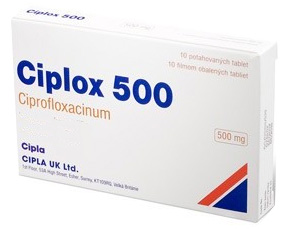
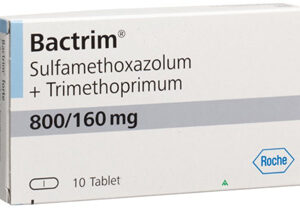
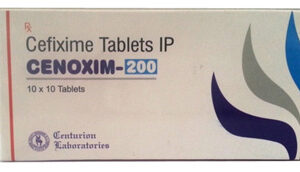
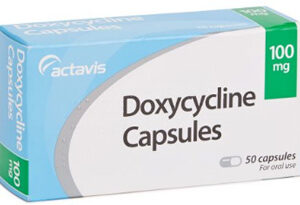
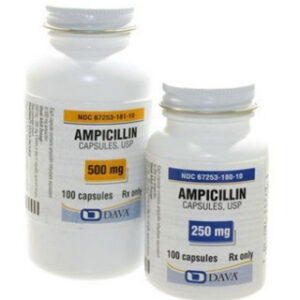
Reviews
There are no reviews yet.